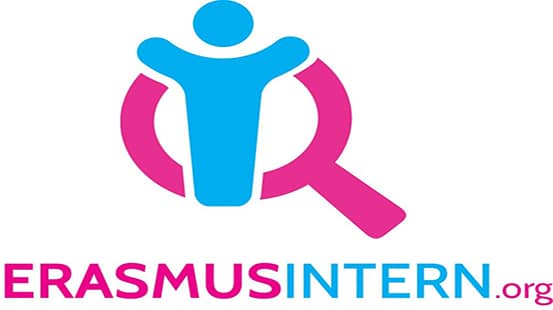Everyone desires to do an Erasmus internship, and Erasmus is aimed to develop highly qualified and motivated students further. Your international living experience will be essential later in life, not least because an Erasmus internship on your CV will seem reasonable to future prospective employers.
Apply your CV for paid internship in hotels and resorts in Greek islands >>
In addition, Erasmus encourages interaction between universities and civic entities across all the countries participating. It implies that you have many nations from which to pick. All EU member nations, Iceland, Norway, Liechtenstein, Turkey and Croatia, are included.
Table of contents
- What Is The Erasmus Internship Program?
- Who May Apply To Erasmus Internship Program?
- How To Apply For The Erasmus Internship?
- Can You Get A Grant?
- What Documents Do You Need?
- Benefits From Erasmus Internship

What Is The Erasmus Internship Program?
The Erasmus program enables students in higher education to do an Erasmus internship in another European nation. It normally lasts two to twelve months. The program will provide you with experience in your chosen industry and the opportunity to work and live on Greek islands.
You will also improve your talents, involving both new language skills and practical training. You will also learn about and experience the culture of your host nation.
Who May Apply To Erasmus Internship Program?
To participate in an internship abroad, you must be enrolled in a higher education institution and pursuing a higher degree.
Erasmus also permits you to train abroad several times as long as the total time spent abroad is twelve months for each study cycle.
If you are chosen, you may be required to take a language assessment exam. Depending on your qualifications, your current university or institution may provide you with a free language course or assistance to help you prepare for your time abroad.
The host organization for your internship might be either private or public. They must, however, be engaged in the labor market or the domains of education, training, or youth.
It is your job to choose your placement. You also must have proper health and broader insurance coverage for the duration of your internship. You must also arrange for your passports and visas to go internationally.
You are strongly advised to have both travel insurance and a valid European Health Insurance Card (EHIC). Your insurance should cover unexpected medical bills, flight delays or cancellations, lost luggage, missing funds, stolen valuables, and personal responsibility to some extent.
How To Apply For The Erasmus Internship?
First, go to your Erasmus University office and notify them about your huge ambitions. They will undoubtedly provide the assistance you want and excellent paper counsel. Then go to erasmusintern.org, one of the best sites for finding Greek Internships.

1. Prepare Documentation
Some universities have different regulations regarding the Internship program; however, below is some information about the application process. You must first clarify the papers with your institution, submitting your details, goals, and intents of leave. This information informs the faculty about your knowledge and experience diffusion.
2. Interview
Any worthwhile internship provider will want to meet with you for an interview before signing any paperwork. You should be able to speak about your future goals and prior experiences throughout the interview. The employer will inform you about the task you will be doing and the experience you will get.
Following the corporate interview and the agreed-upon time of employment, you must provide the company university papers, such as a Learning Agreement, which should outline the commitments you will have and the skills you will obtain. Remember that the paper must be signed.
3. Learning Agreement
A Learning Agreement is a plan that outlines the training you want to complete during your mobility. Before the mobility begins, the Learning Agreement should be signed by competent authorities at the home and host institutions and the student.
4. Financial Agreement Document
Most internship programs are free, but you will get financial assistance from your institution for the program, which you will sign in a financial agreement contract. It is a grant document that provides a monthly stipend based on where you work. If you have exceptional needs, you may be eligible for extra money.
Should you travel between programs in different nations, contact your native agency for their respective charges. There is also special help for students from underprivileged families or the program’s most remote nations and areas. You will sometimes need more financing from your university, the government, or other sources.
5. Travel And Subsistence Costs
Since internships are often unpaid on the part of the host organization or nation, firms often assist in other areas. For example, many firms provide one meal daily to their interns to help the student’s work and financial position.
Furthermore, businesses assist in the search for housing and cover public transportation expenses. Depending on the position or sector, many firms often provide additional products to their interns throughout the internship to help the company flourish.
Can You Get A Grant?
Applying for an Erasmus grant will help you cover some of the additional expenses you’ll face while studying or interning abroad. The award is meant to augment your current financial assistance, not to replace it. As a result, you should keep earning your current scholarships, loans, and awards during the placement time.
Working might provide you with no more crises, higher salaries. Any payment made by the host organization, for example, does not affect the allocation of your Erasmus grant. A part-time job is also permitted as long as you continue to participate in the activities outlined in the agreed-upon program.
The amount of grant cash available varies on the destination country, with individuals traveling to more costly areas receiving more. The real amount may range between 450 and 500 Euros per month. If you have exceptional needs, you may be eligible for extra money.
The first step in getting an internship – and a grant – is to go to your university’s ERASMUS Office, Internship Coordinator, or International Office. All educational organizations have distinct processes and deadlines, so you must know them.
Your monthly award will be computed and distributed in two installments when accepted into the program. The total amount is calculated depending on the number of months you are on placement. The first sum you get will be 70% of the total, and the second sum will be the remaining 30%. You will get half of your internship compensation at the midway point.

What Documents Do You Need?
Again, your initial step should be to contact the Erasmus Office, Internship Coordinator, or International Office at your university.
You will be expected to complete various paperwork during the internship to get your grant payments.
1. This contains the Grant Application Form, Traineeship Learning Agreement, and Letter of Intent. You will also require an Internship Agreement from the host organization and the Erasmus Student Charter, which covers your rights and obligations.
2. When you arrive at your internship, you should send a Certificate of Arrival and the completed Learning Agreement to your home university. This critical step is generally followed by paying your first award money.
3. Upon completion of your placement, you will be given a Certificate of Attendance and a Traineeship Certificate.
Finally, ECTS credits (European Credit Transfer System) will be added to your academic accomplishments if you complete the internship. On the other hand, they might be part of your Diploma Supplement. The amount of ECTS you will get is specified in your Learning Agreement.
Benefits From Erasmus Internship
• Obtain work-related experience – You may gain the experience you need in whatever kind of employment you choose, and you will have the necessary assistance.
• Expanding your network – Meet individuals from other nations and share experiences and cultures.
• Improve individual skills – Improving your so-called soft talents will come in helpful for future employment.
• Language skills – While working overseas, you will have the opportunity working in Greece and to acquire new languages that will come in useful.
• Explore your career route and get feedback – With Erasmus Internships, you are not limited to a single professional path. You may test out a variety of professions or chores to see which one you like.
• Get your first job – The experience you receive with Erasmus will undoubtedly help you get your first job.
• Increase your knowledge and expertise to open up new chances.
Conclusion
To apply, you must first contact your university’s mobility office. They will tell you about the process, application deadlines, learning recognition, and financial options for your stay abroad. Because the procedure might be lengthy, you should begin contacting host companies/organizations many months in advance.
You, your school, and the hosting organization must all sign a “learning agreement” before you may leave. By then, you will have received the first 70% of your award and will be ready to begin your mobility period!
The learning agreement must be completed and signed again after the internship. The remainder of the award will then be handed to you.
Hiring Greece employment agency offers internships to students who want to improve their knowledge in food industry, waiter/bartending and office administration in 5* and 4* hotels and resorts in Greek islands.
Internship includes accommodation, meals and salary. Internship period: 3 or 6 months.
Enjoy the never ending summer while building your future!
